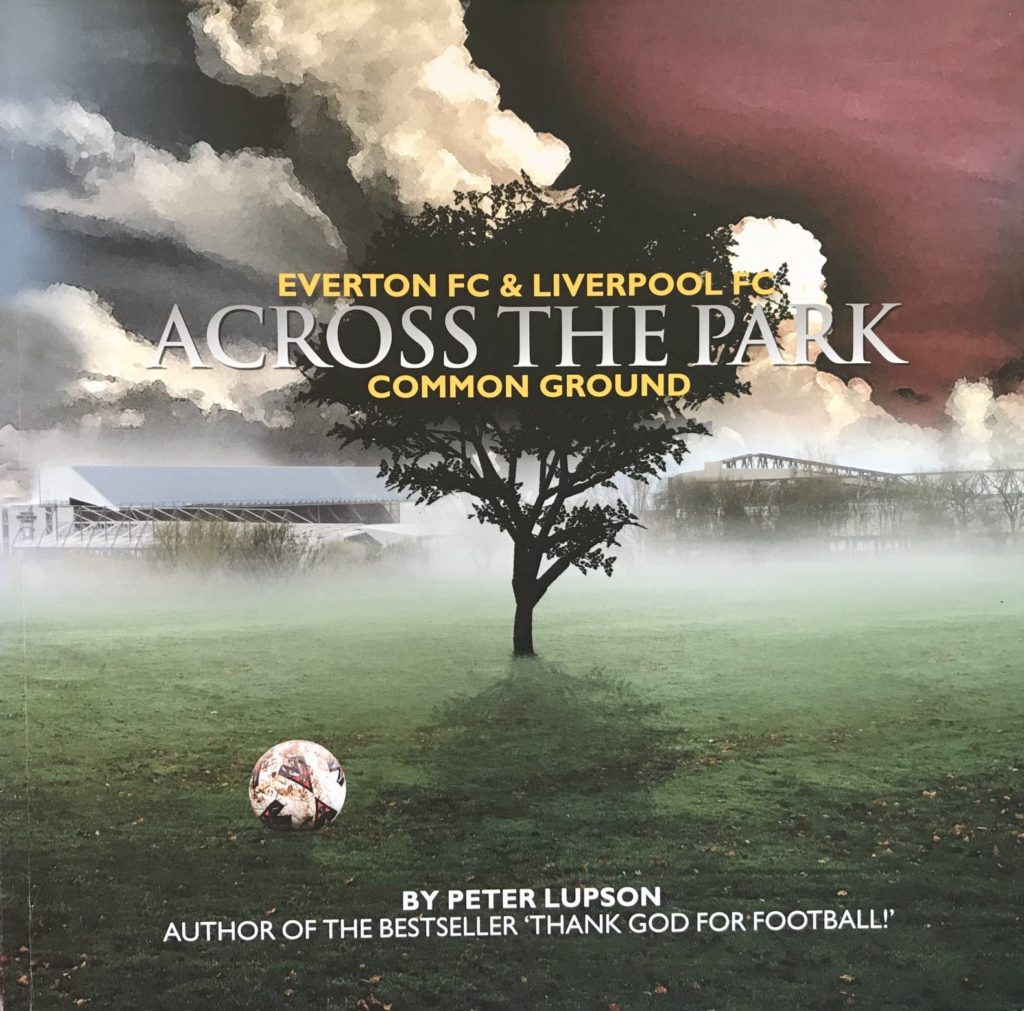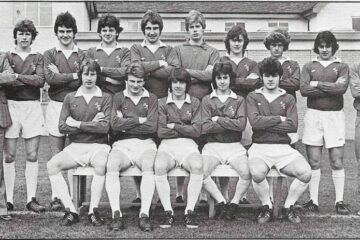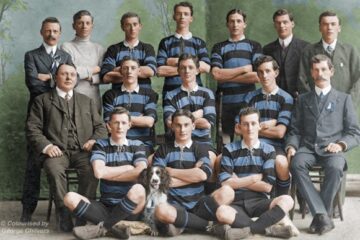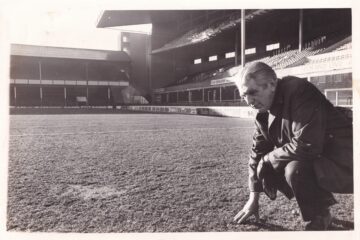Football historian Peter Lupson sheds light on the 1892 Liverpool and Everton rent row

IT’S the most famous rent row in football history. Except football historian Peter Lupson has now shed new light on the 1892 argument which saw Liverpool Football Club emerge from a split with Everton.
And living up to Liverpool stereotype, it was a row over a drink – or rather attitudes to the demon drink – which caused the seismic shift.
Even fans with barely a passing acquaintance of the history of this city’s two soccer giants know that Everton came first, until a row over rent at their Anfield home led to the formation of Liverpool.
Lupson, author of the best-selling Across The Park and Thank God For Football, has spent months researching, studying and meticulously chronicling the background and the history of the events of 1891 and 1892. And he delivered his findings at a packed Hornby Room in Liverpool’s Central Library yesterday.
For 127 years it has been accepted that rent, pure and simple, was at the heart of the acrimonious row. Everton were the tenants of Anfield, and John Houlding wanted to increase the rent on the stadium he owned.
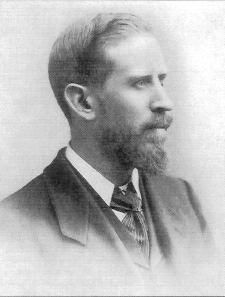
Leading committee members, led by George Mahon, disagreed – and the situation escalated to the point of irretrievable breakdown. The whole row, however, was infinitely more complex – and at the heart was alcohol and politics, always an explosive mix.
On one side was John Houlding, a Tory and a wealthy brewer – and his only ally on the board, Edwin Berry, a solicitor to the Licensed Victualler’s Association.
Ranged against him were a selection of some of the most zealous moral puritans of the day.
George Mahon was the organist of St Domingo’s Church and a member of the Liberal Party which, despite the name, was the party of moral purity in the austere Victorian age.
Rev Ben Chambers, loosely described as the founder of Everton, was a prominent member of the Temperance Movement and once took a pub to court in Stoke for breaking a licencing law.
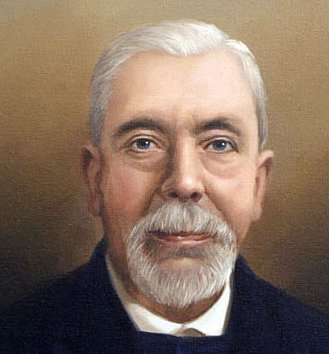
Dr Clement Baxter was a committed and much loved city doctor who regularly witnessed first hand the appalling affects of drink on his patients – and a Liberal councillor to boot.
Will Cuff was a choirmaster at St Domingo’s, a strong and committed Christian who once declared that: “Football is the greatest teetotal agency in the world.”
There was William Whitford – an active temperance campaigner who went around talking about the “iniquitous influence of brewers” at a time when Houlding still owned his club!
And William Clayton, a committee member who used to give regular temperance talks to a Formby church.
Houlding never stood a chance.

“The Temperance Movement was at its height in the 1880s,” explained Lupson. “There is no doubt that had Houlding been a butcher or a baker, he would have had no problems. But he was a brewer. And at the time the association with drink was something that people of high moral standards were strongly opposed to.”
And the majority of the rapidly expanded Everton board were tee-total.
Indeed when Mahon led Everton to Goodison Park he ensured it was a club policy decision not to sell intoxicating liquor on the premises and that brewers would not finance the club.
That last statement was hugely ironic given the current reliance of both clubs on funds from brewing giants Chang and Carlsberg.

Lupson added: “The whole thing hinged on the Sandon Hotel,” (the official club headquarters and the pub used as a changing room by the players due to its proximity to Anfield). Drink had the same kind of image in the Victorian age as drugs does now,” he said “and while it is an exaggeration to say that Houlding was considered the pusher of the time, I don’t think we can quite go that far, but nevertheless the Temperance Movement was a powerful one trying to fight what it saw as the evils of drink. People would spend money on drink that should have gone on their children and on food and clothing. Children were left destitute. Liverpool had one fortieth of the country’s population, but a tenth of the arrests for alcohol related crime. It was a major problem. Beer was cheaper than tea or coffee and safer than water or milk. But members like William Clayton were horrified that the Sandon was seen to be causing bad behaviour amongst Everton players. One, Patrick Gordon, was brought before the committee for bad behaviour whilst drunk in the Sandon. Another committee member felt that one slump in results was due to players spending too much time there.”
While rising rents was undoubtedly the catalyst for the row, it seems that the attitudes and the personalities of the individuals concerned was equally to blame. Houlding and Mahon had crossed swords politically before the split. In 1887 Mahon was elected to the Walton local board, at the expense of Houlding’s protege John Utting. And two years later Houlding was the agent for a Lancashire council hopeful called Ratcliffe. Mahon, who was the returning officer, disqualified Ratcliffe on a technicality.
But while Houlding has been dealt a bad press down the years, painted as the villain of the piece, Lupson considers that description as a myth.
“When Everton were forced to move from Priory Road to Anfield in 1884, the club’s very future was threatened because of the cost of building a new stadium,” he explained.
“Two members of the management committee, William Barclay and W Jackson went to Houlding and asked him to buy the club out. The cost of building a new stadium was £6,000 – in an age when £1,000 would have paid the wages of an entire football team for a whole year. He was offered no guarantees, with just a maximum of £100 a year rent in return, but Houlding agreed so that Everton could continue. In 1889 when he opened his second pub, he introduced free Christmas dinners for the elderly and poor in West Derby with, eventually, 1,000 beneficiaries. He was involved in a workhouse and opened an orphanage in Fazakerley. Tom Evans, the vice-captain of Everton, even wrote a letter to The Sports Field at the height of the dispute describing Houlding as ‘the best friend the club ever had.’
Appropriately, Peter Lupson chose Armistice Day for his final revelation.
He explained: “I found an article where William Barclay declared ‘although we are the Liverpool club, all the old playing members of the old Everton, to whom Evertonians are much indebted for promoting the game in our midst, have been elected honorary life members of our club.’ ”
Published in the Liverpool Echo, 12 November 2009, Updated, 8 May 2013
.
.
